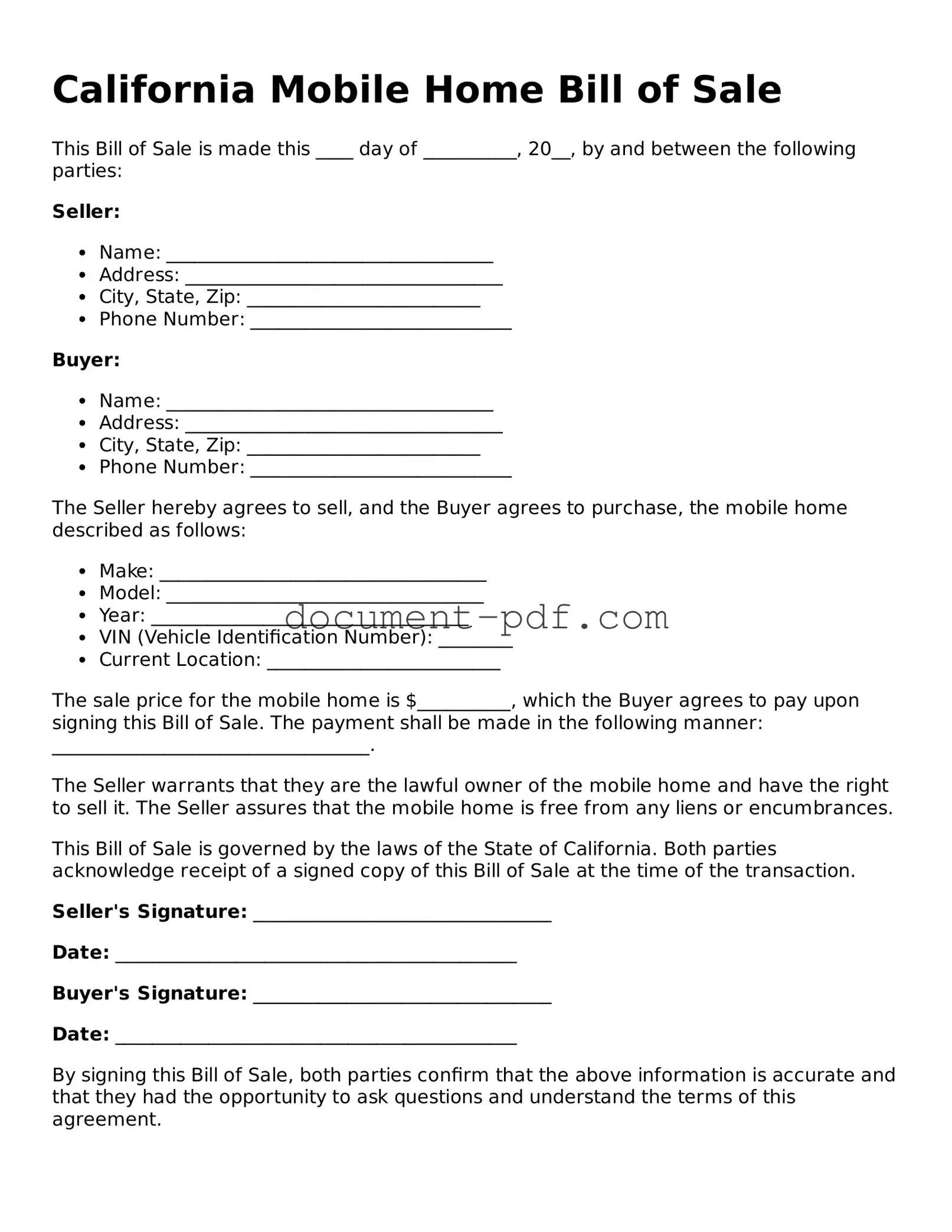Attorney-Verified California Mobile Home Bill of Sale Template
The California Mobile Home Bill of Sale form serves as a legal document that facilitates the transfer of ownership of a mobile home from one party to another. This form outlines essential details such as the buyer and seller's information, the mobile home's description, and the sale price. Understanding this form is crucial for ensuring a smooth transaction and protecting the rights of both parties involved.
To begin the process of filling out the form, click the button below.
Access Mobile Home Bill of Sale Editor Here

Attorney-Verified California Mobile Home Bill of Sale Template
Access Mobile Home Bill of Sale Editor Here
Finish the form without slowing down
Edit your Mobile Home Bill of Sale online and download the finished file.
Access Mobile Home Bill of Sale Editor Here
or
Click for PDF Form
